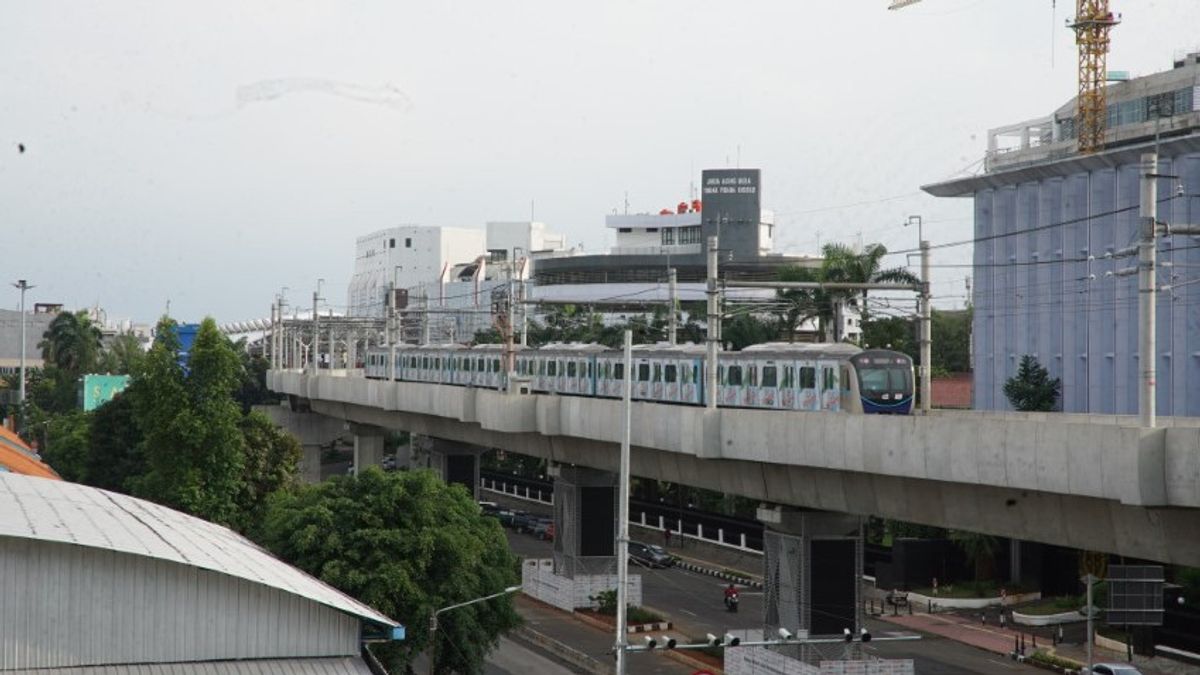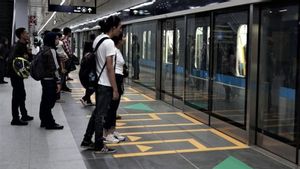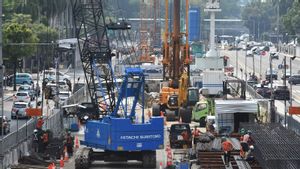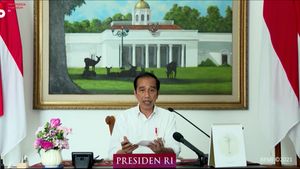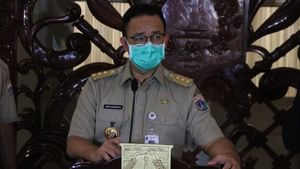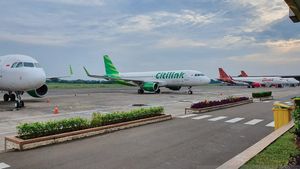JAKARTA - PT MRT Jakarta has shortened the operational time of trains on weekends during the Emergency PPKM or PPKM Level 4. This change in operating hours will take effect today, Saturday, July 24.
On Saturdays and Sundays or holidays, MRT trains operate from 06.00 western Indonesia time to 20.00 western Indonesia time. Previously, the MRT was operational per day until 20.30 western Indonesia time.
Meanwhile, MRT operating hours are Monday to Friday or fixed working days, starting at 06.00 western Indonesia time until 20.30 western Indonesia time.
"The distance between trains (headway) on weekdays is every 10 minutes and on weekends or holidays every 20 minutes. Limitation on the number of users is 65 people per car (train)," said Plt. PT MRT Jakarta Corporate Secretary Ahmad Pratomo in his statement, Saturday, July 24.
Pratomo said that the change in the operational time of the MRT Jakarta was a follow-up to the Decree of the Governor of DKI Jakarta Number 875 of 2021 concerning the Implementation of the COVID-19 Emergency PPKM.
Then, the Decree of the Head of the DKI Jakarta Provincial Transportation Service Number 259 of 2021 concerning the Implementation of Technical Instructions for Limiting Transport Capacity and Operational Time of Transportation Facilities in the Context of COVID-19 Emergency PPKM.
"PT MRT Jakarta continues to implement a number of policies related to the implementation of Emergency PPKM, and will continue to take various adaptive steps in fulfilling the company's commitment to support the government in efforts to overcome the pandemic so that it can run optimally," explained Pratomo.
SEE ALSO:
In addition, PT MRT Jakarta has also temporarily closed three stations starting today. This step was taken to suppress the transmission of COVID-19 through the Java-Bali Emergency PPKM.
Three stations were temporarily closed, including Haji Nawi MRT Station, ASEAN MRT Station, and Setiabudi Astra MRT Station.
"It will take effect from Sunday, July 18. We are closing three stations to limit people's mobility, especially in Jakarta, which is later expected to reduce the spread of the COVID-19 virus," he said.
The implementation of this policy has previously been through a joint study with the DKI Jakarta Transportation Agency by considering various things.
These considerations include low station density, not being a large station, and the location of the station not being close to health care facilities.
The English, Chinese, Japanese, Arabic, and French versions are automatically generated by the AI. So there may still be inaccuracies in translating, please always see Indonesian as our main language. (system supported by DigitalSiber.id)
